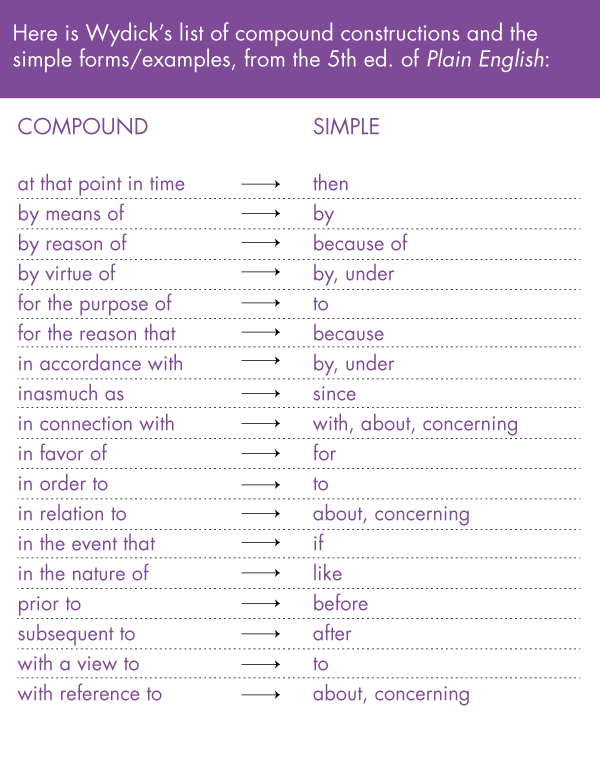 Good writing is lean writing. Unnecessary words impede clarity and impact.
Good writing is lean writing. Unnecessary words impede clarity and impact.
Lawyers trade in words. So you’d think we would know to use them carefully and sparingly. Instead, verbosity abounds. Excess words invade our sentences like so many extra pounds, muddying our points and tiring the reader. Nobody likes a slow read – least of all, busy law clerks and judges.
For some time now, legal writing experts have advised aiming for “brisk, uncluttered sentences.”
To achieve crisp construction, edit heavily.
Look for “compound constructions,” i.e., those using “three or four words to do the work of one or two,” as Richard Wydick recommends in his Plain English for Lawyers, a classic among legal writing guides.
Compound constructions crush the vitality of prose. We should pare them from every page, and replace with simple forms.
Other word wasters to watch for is “the question of whether” or “the question as to whether.” Replace with “whether” or “the question whether.”
Also, instead of “is authorized to,” write “can” or “may,” and instead of “pertaining to,” simply use, “about.”
Eliminating these word-wasters is a first step toward more effective communication.

About the author:
Savannah Blackwell is a former news reporter who covered government and politics for more than a decade, mostly in San Francisco. She became a licensed California attorney in 2010 and specializes in legal research and writing. She can be reached at savannah.blackwell@gmail.com.


